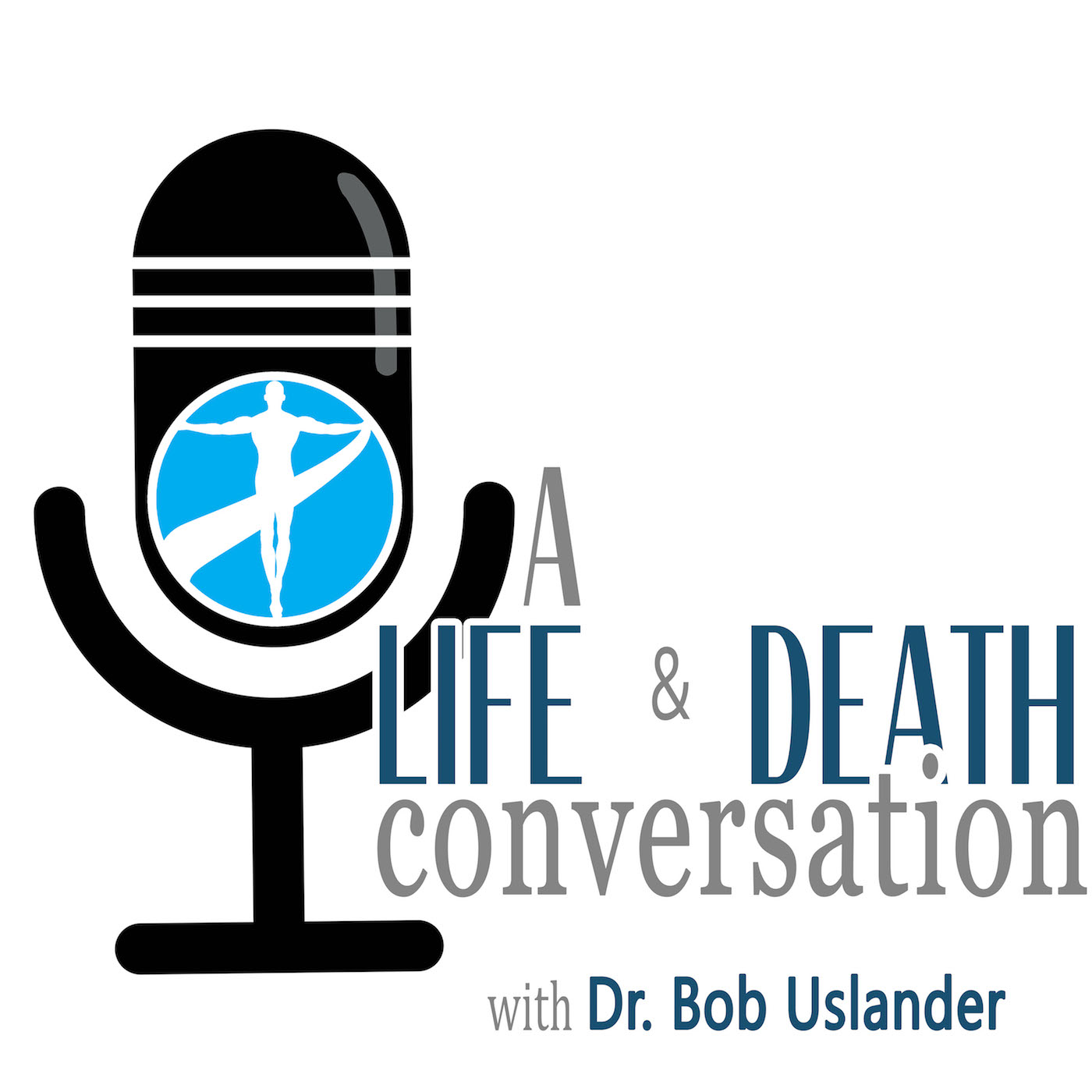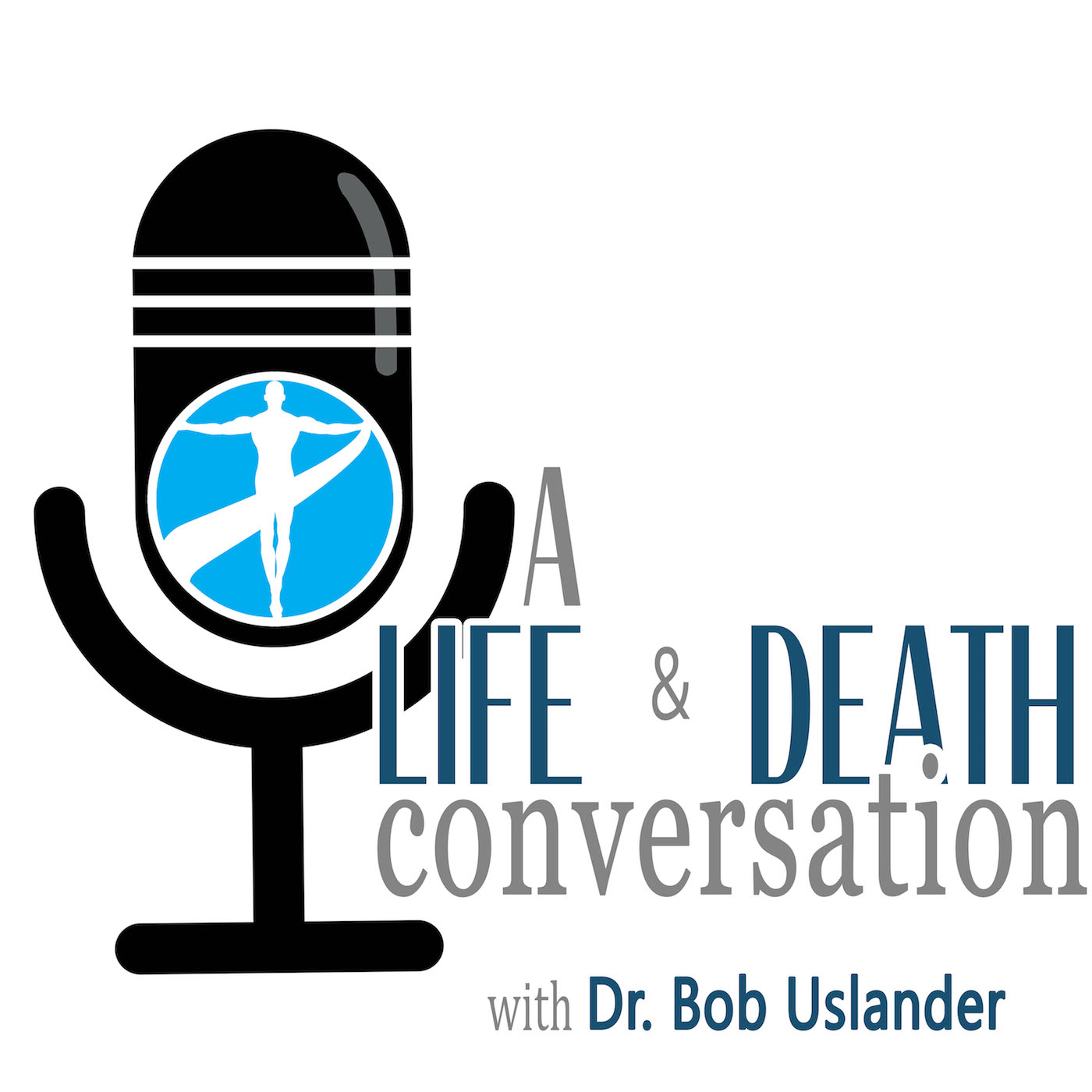How Music Is Helping Alzheimer's Patients – Alive Inside, Michael Rossato-Bennett
Update: 2018-09-20
Description
Alive Inside" is a wonderful film and movement that awakens the Alzheimer's mind and connects generations, comforting elders and rescuing youth. The film's Director, Michael Rossato-Bennett, shares how it all began. IntegratedMDCare.com " Note: A Life and Death Conversation is produced for the ear. The optimal experience will come from listening to it. We provide the transcript as a way to easily navigate to a particular section and for those who would like to follow along using the text. We strongly encourage you to listen to the audio which allows you to hear the full emotional impact of the show. A combination of speech recognition software and human transcribers generates transcripts which may contain errors. The corresponding audio should be checked before quoting in print. Contact Alive Inside website Alive Inside Facebook Page Transcript Dr. Bob: Today's guest is Michael Rossato-Bennett-Bennett, the director of the film, Alive Inside, and the founder and executive director of the Alive Inside Foundation. Alive Inside is a phenomenal film, and I highly recommend you find a way to watch it. The Alive Inside Foundation is dedicated to healing loneliness and disconnection in all of our lives, but especially in the lives of the very young and the very old who are living with dementia. They partner with communities to connect the generations and shift our relationship with life, aging and growing up. The Foundation seeks to end loneliness using empathy, music, life story, and film. This interview with Michael is an intimate exploration into the mind and heart of a man who seems to have stumbled upon his purpose and has been inspired to create in a much more expansive way since doing so. I hope you enjoy it. So, Michael, your life has changed pretty significantly in the last several years. From what I can gather, what started as a project that you couldn't really foresee a whole lot coming out of, to what has been created in your life now and looks amazing. What's it like? Tell me the journey a little bit. Michael Rossato-Bennett: Well, like every life, probably the most important things are your failures. Those are what you learn from, like your woundings, your emptiness, your hungers. These are the things that actually fuel you. When nothing else makes sense, I'm deeply interested in what makes sense when nothing else makes sense, and I think that's a very apt conversation to have in this time because I'm sure I'm not alone. I think if everyone were honest, they would just say right now, "What the heck is going on?" Dr. Bob: How did we get here? Michael Rossato-Bennett: How did we get here? How do we tell our children your president doesn't tell the truth all the time? How do we say your government isn't really trying to protect you? We're confused. I mean I am, and I have been many times in my life. I'm going to get a little philosophical here, but I think anyone living in a predatory culture that doesn't quite know that they're living in a predatory culture, has a feeling of disquiet and confusion, and like all of us who are trying to do something in the world, our efforts are constantly called into question. What am I doing? Am I helping create a just world? Am I helping create a world where life is recognizing and aiding life, or am I deeply investing in a system that is reducing the quality of life, literally for the planet at this time? I think every one of our occupations, from farmer to doctor, has to wrestle with these questions right now, what is my place in this world that we've created, and, unfortunately, we don't get to remove ourselves from it I don't think. Dr. Bob: It's interesting. As you're talking about this, and I don't know if you have children or not, but as you're talking about this, I'm flashing on my 11-year-old son, who is right at the verge ... If I asked him what does it feel like to live in a predatory world, I think he would know enough about what I'm asking to form an opinion and connect with it. But I, also, feel like he's still living in this other world where he can slip back into this sense of comfort and not allow that to influence his day to day existence. Michael Rossato-Bennett: I mean this is at the core of everything I'm working on, and it's simply the recognition of the idea that we actually do mature, that there is actually an arc to our lives. When I was 21, I was competing my ass off to win the steak knives at my job for Cool Vent Aluminum telephone salesmen. I wanted to be the best Cool Vent Aluminum salesman because the sales manager told me that I was nothing if I couldn't book these appointments for his salesmen to sell this poor, older people aluminum siding and new windows. Dr. Bob: And you believed that? You believed that story. Michael Rossato-Bennett: I believed it. Dr. Bob: Yeah, you did. Michael Rossato-Bennett: I believed it, and really, honestly at that point, all I wanted to do was be good, be recognized, to succeed, to have some validation, and honestly, I didn't think that the people who were in authority, that the people who were older than I was, I didn't think that they didn't know what they were doing. I thought they knew what they were doing. But your 11-year-old son, he's awakening in a world where it's obvious that we don't know what's going on, that something is happening, and it's amazing what's happening. I mean basically what's happening is we're going through a major psychic, intellectual, spiritual, existential definition of what it means to be human, and what it means to be human together, and ideas that we've had for thousands of years are no longer functional in the face of these incredible tools that we've created in the last 20 or 30 years. The computer has just turned human culture on its head, and we are not ready for it. Dr. Bob: Right. Michael Rossato-Bennett: And we're innocents, and I think in a hundred years we'll look back and this and go ... Just like slavery. At one point, slavery seemed to be a pretty good business model. We try not to do that anymore, at least in a recognizable form. But in a non-recognizable form, we haven't given up that business model, and that's what we're dealing with. I mean you're a doctor, and I work in healthcare to some degree as well, and Marshall McLuhan is a great media thinker, a thinker about media, and he said years and ... Maybe 60 years ago or 50 years ago, he said, "The medium is the message," and I never understood what that meant, but I understand what that means now, that basically, the structures that we create determine the outcomes, no matter who is in them, or no matter what the outcomes are. When you have a lot of people making money on petroleum, you get plastic in the ocean. It doesn't matter what people do. In 50 years, we won't be relying on petroleum. We won't have the pressure to create as much plastic, and maybe we can solve that problem. Dr. Bob: Well, so fascinating. Great perspective. Love it. Not exactly where I was anticipating the conversation was going to go, but I love it, and I want to hear ... So you take that. I'm sure that your awareness is continuing to mature, to evolve, and it's influenced by and influencing what you are doing day to day to improve the lives of the human beings that you're concerned about, as we both are. What's happening in your life? I want to know what you're doing. What's the Foundation doing? How are you right now serving in a way that is trying to achieve the most benefit for humankind? Michael Rossato-Bennett: Well, I mean that's a big thing to say. Dr. Bob: I know. Because it's happening. What you're doing is serving humankind in a positive way. Michael Rossato-Bennett: Right, right. I'm not young. I'm not a child anymore, and you get to a certain point in your life, and you ask yourself, "Okay. What can I do to help other people," because helping yourself is kind of boring after a while. It just becomes boring. So you want to expand your relationships with other people, and it's interesting. Dr. Bob: I lost you for a second there. You said interesting, and then I lost you. Michael Rossato-Bennett: I was relating to these thoughts. Okay. Sorry. All of my thinking comes out of working with these elders with dementia and meeting them. You're right when you say my life has transformed. I mean I walked into my first nursing home, and I wanted to run because I'd had really some very traumatic experiences in hospitals when I was a child. They put that ether on my face. I don't think they do that anymore, and I struggled and screamed, and yelled, and fought. They finally just gave me shots in my butt. But that smell of health care, of the hospital, I swore I would never, ever step inside a hospital or a healthcare facility, place forever. I promised myself I would never, ever do that. Then here I am. I had been hired to make a website for a guy who was bringing iPods into nursing homes, and he thought that it would be a good, new thing to do, and so I did it. There I was sitting in front of a man, Henry. He was the first one that I really saw the power of music to wake the hidden vitality of a mind, a mind that had lost its capacity to connect with itself and with others. I didn't want to be there. It was very sad for me to see this human being, this shell, if you will, of a human being, who didn't seem to be able to come out of that shell. Then we gave him ... Millions of people have seen this clip. Actually, over 100 million people have seen this clip. Dr. Bob: Really. That's where it's at, at this point. Incredible. Michael Rossato-Bennett: Well, it was actually one of the earlier clips to go viral on Facebook. So it was still back when Facebook was becoming before they put all these clamps and started monetizing everyone's life. It was back wh
Comments
In Channel







